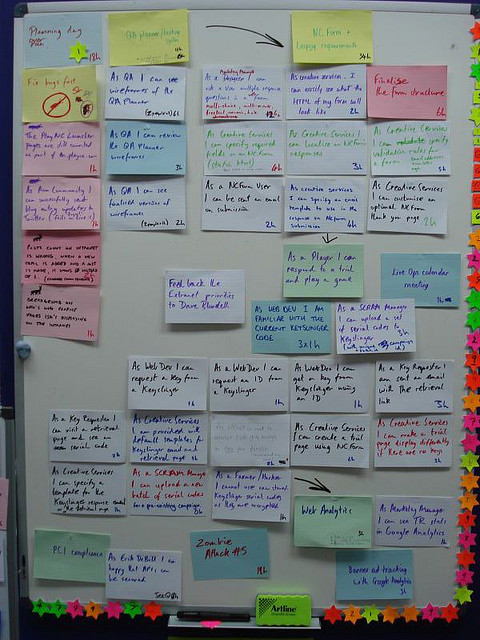This week, Phispers brings you the
latest on the Ranbaxy-Daiichi and Merck-Gilead cases. There is also news on
Medtronics, which faces a whistleblower lawsuit. And Valeant, which has come
under the scanner for allegedly defrauding insurers. Our compliance roundup
updates you on companies across the world that faced regulatory action
recently. Singapore court’s 373-page order reveals how Ranbaxy withheld information from DaiichiLast week, a report in The Indian Express brought to light how Ranbaxy deliberately withheld information from Japan’s Daiichi Sankyo in the Ranbaxy-Daiichi case. The information was based on a copy of the Singapore International Arbitration Centre’s (SIAC) order, passed in April 2016. The former owners of Ranbaxy – Malvinder Singh and Shivinder Singh – face a penalty of Rs 35 billion (US $ 523 million) and have until August 22 to challenge the SIAC order. The information implicates the Ranbaxy top brass in a “in a slew of irregularities, from fraud to falsehood.” In over 373 pages, the SIAC order lays out what it calls “the path of deception that Ranbaxy took and how it kept Japan’s Daiichi Sankyo — which bought Ranbaxy in 2008 for Rs 198 billion (US $ 2.96 billion) — in the dark even a year after its purchase”. The SAIC order was based on a 2004 Self-Assessment Report (SAR) prepared by the then head of research and development of Ranbaxy, Rajinder Kumar, for the company’s internal use. The contents of an internal report were not shared with Daiichi. The SAR listed
over 200 drugs, including antiretroviral drugs for treating AIDS patients, for
which Ranbaxy allegedly used fabricated data to bag approvals from regulators
and authorities of more than 40 countries. Compliance roundup: Chinese, Indian, American and Spanish firms in compliance troubles Notice of non-compliance to Artemis Biotech: Artemis
Biotech, a division of Themis
Medicare in India, received a notice
of non-compliance from European regulators. According to the regulators,
the company had violated basic principles of data integrity within its instrument
laboratory. And the relevant GMP data was outside the control of the quality
management system. As an outcome of the inspection, the Certificates of Suitability (CEPs) granted for popular cholesterol lowering ingredient – simvastatin – have been suspended. Just three months ago another Indian manufacturer – Krebs
Biochemicals & Industries – had its CEPs suspended for the same product.Alcor found to have unsuitable facilities: A Spanish manufacturer – Alcor SL – that manufactures liquid syrups for use in Spain was found not to have suitable facilities, personnel and materials to ensure proper compliance with GMP during an inspection in June this year. Although the company responded with a corrective action plan, it was found “insufficient”.Claris recalls injections in the UK: Indian manufacturer Claris
Lifesciences recalled
Furosemide
injections in the United Kingdom as they had been inadvertently distributed in
the country. The product was intended for sale in Australia. FDA’s warning letters to Zhejiang Medicine, Concept Products: While
there was activity in Europe, the FDA issued a warning
letter to Zhejiang
Medicine (Xinchang Pharmaceutical Factory), a manufacturer of antibiotics
like levofloxacin,
daptomycin
and vancomycin,
for data integrity violations. Laboratory personnel were found “disguising testing”. The personnel were conducting unofficial testing that was being recorded in separate ‘R&D’ folders before conducting the officially reported sample analyses. Analysts were also found signing
and dating microbiological testing laboratory worksheets five days before the
test results were available and backdating laboratory worksheets for impurities
and content testing by four days.The FDA also issued a warning
letter to a Chinese manufacturer, Concept Products Limited, for “significant violations of cGMP regulations for finished pharmaceuticals”. It placed yet another Indian company Laxachem Organics and Chinese firm Yangzhou
Hengyuan on import alert. Warning letter to Noven: A US-based patch manufacturer – Noven
Pharmaceuticals – received a warning
letter over quality concerns uncovered in its transdermal drug delivery
systems (TDDS) such as Minivelle
and Daytrana.
The FDA expressed concerns over the scientific soundness of the company’s measurement method since the FDA stated that “your unsound methods could be masking product failures” and leading “to product detachment, expose the drug to other people, and other safety issues.” Now, Merck has to pay Gilead’s US $ 200 million legal feeIn March this year, Merck
had won a legal dispute over sofosbuvir,
the API in Gilead's
multibillion-dollar drugs Sovaldi and Harvoni.
The federal jury had ordered Gilead to pay Merck US $ 200 million in damages
for infringing on patents for the hepatitis C drugs. But
in June, the US Dristrict Judge Beth Labson Freeman threw out Merck’s victory and snatched back the US $ 200 million Merck had been awarded. Last week, the same judge added insult to Merck’s US $ 200 million-injury. Freeman said Gilead was entitled to relief from legal fees it had incurred while defending its case.Merck has been handed a US $200
million bill for Gilead's
legal fees. Merck now intends to appeal in the case, saying the judge’s ruling “does not reflect the facts of the case.” FDA launches improved web-based version of its Orange BookThis week, the US Food and Drug
Administration (FDA) launched an improved
web-based version of its Orange Book – a publication on drugs approved on the basis of safety and effectiveness. The Orange Book is widely used by doctors and by the regulatory community for identifying which drug products are substitutable for one another. The improved Orange Book has an updated design and has more user-friendly search optionsFormerly known as the Approved
Drug Products with Therapeutic Equivalence Evaluations, the Orange Book had
first appeared as a published list in 1980. It came online in 1997. Valeant allegedly defrauded insurers, may be under criminal
investigation In one of the most serious probes
faced by Valeant
Pharmaceuticals, the Canada-headquartered company may be under criminal investigation over allegations that it defrauded insurers by hiding its ties with a mail-order pharmacy – Philidor – that boosted its sales. Prosecutors are probing whether
Philidor made false statements to insurers about its ties with Valeant, while
helping patients get coverage for the higher-priced Valeant drugs. According to
a report published in The Wall Street
Journal, criminal charges are likely to be levied against former Philidor
executives and against Valeant as a company. The relationship between Philidor
and Valeant has been under the scanner since October 2015, when questions were
raised about Valeant's accounting. Novartis to expand capacity of monoclonal antibody plant in EuropeNovartis
is investing
US $ 100 million to expand its monoclonal antibody (mAb) capacity at a
plant in Europe. The Swiss drugmaker has committed about US $ 1 billion to
boost its biosimilar production in order to emerge a leading player in
biosimilars. Novartis is beginning work on the mAb project that will boost
capacity by 70 percent at the Novartis biotechnology center in Huningue,
France. Meanwhile, the company has
acknowledged that employees in South Korea may have been involved in rebate
trickeries. But it says an investigation of similar accusations
in Turkey uncovered no problems. In Turkey, Novartis considers the matter
closed.In April, a prosecutor in Turkey
had reportedly opened an investigation after receiving a copy of an email sent
by an anonymous whistleblower to Novartis CEO saying the unit there paid
consultants US $ 290,000 in 2013 and 2014 to win about US $ 85 million in
business from government hospitals.Matters in South Korea are a lot serious. In South Korea, prosecutors want the government to suspend the company’s operations there after they indicted half-dozen executives for issuing improper rebates. German watchdog criticizes efforts to accelerate new drug approvalsGermany’s cost-effectiveness watchdog – the German Institute for Quality and Efficiency in Health Care – has criticized
an effort by European regulators to accelerate approval for new medicines
based on limited evidence. These concerns come at a time when regulators on both
sides of the Atlantic are looking for new approaches to fulfill unmet
medical needs through faster approval of drugs.Adaptive pathways approach is a term
used to describe a method for jumpstarting drug approvals for select patient
populations. Two years ago, the European Medicines Agency (EMA) had launched a
specific pilot program in this direction. However, the German watchdog
maintained that the EMA failed to make its case that this approach for
approving drugs can make a demonstrable difference. Medtronic faces
whistleblower lawsuit for using devices under false pretensesMedtronic, a major medical device manufacturer, is facing a whistleblower lawsuit that claims it sought FDA approval for its devices under false pretenses. The devices were being regularly used for a purpose they weren’t intended to be used by the regulators.According to Dr. Vikas Saini, president of the Lown Institute, a Boston healthcare think tank, who has been following the case, the devices had been labelled ‘not for cervical spine use’. “Yet, in everything about them, including emails from their marketing folks, it makes clear that they were meant to be and were used in the cervical spine,” Saini said.Medical devices are lightly regulated by the FDA. Once
cleared by the FDA, physicians used medical devices however they deem fit. Questions being
raised on health of Clinton, Trump Donald Trump and Hillary Clinton are two of the oldest presidential candidates in the US history. While Clinton’s doctor certified that she “is in excellent physical condition” and Trump’s physician declared he would be “the healthiest president – ever”, these testaments are not being taken seriously in the absence of detailed medical records. Both Trump’s and Clinton’s doctors released brief
assessments of their health recently. Television host Sean Hannity has aired a series of segments on Fox that cast doubts on Clinton’s health. Democrats, on the other hand, have been questioning Trump’s mental health. One congresswoman recently suggested he should undergo a “mental fitness test.”
Impressions: 5118
GSK, Google form first bioelectronics firm; 11 generic companies benefit from the Teva Allergan deal
This week,
Phispers brings to you the details of the bioelectronics firm formed by GSK and
Google. There is also news on companies like Teva, Takeda, Jinan Jinda and Eli
Lilly, besides two other news snippets pertaining to the FDA -- while the first
one pertains to generic approvals, the other one relates to an additional black
box warning on a few antibiotics. GSK and Google
join hands to form first bioelectronics startupGlaxoSmithKline and Google’s parent company – Alphabet – have joined hands to create a new company that is focused on fighting diseases by targeting electrical signals in the human body. This way, GSK and Alphabet’s life sciences unit – known as Verily Life Sciences – will be jump-starting a new field of medicine known as bioelectronics.Verily Life
Sciences and GSK will together contribute US $ 715.12
million
over seven years to the startup Galvani Bioelectronics. The startup will develop
miniature electronic implants for the treatment of asthma, diabetes and other
chronic conditions. The
implantable devices developed by Galvani, which is owned 55 percent by GSK and
45 percent by Verily, can modify electrical nerve signals. The aim is to
modulate irregular or altered impulses that occur in many illnesses.The
new company
will be based at GSK’s Stevenage research center north of London, with a second research hub in South San Francisco.The announcement comes just weeks after GSK had said it was going to use Apple’s HealthKit to conduct clinical trials.Three years ago, GSK had first unveiled its ambitions in bioelectronics in the journal – Nature. Bioelectronic remedies attach battery-powered implants the size of a grain of rice (or even smaller) to individual nerves to correct faulty electrical signals between the nervous system and the body’s organs.GSK believes altering these nerve signals could open up the airways of asthma patients, reduce inflammation in the gut from Crohn’s disease and treat patients with a range of other chronic ailments such as arthritis. So far, the implants have only been tested on animals but the aim is to produce treatments that will supplement or replace drugs that often come with side-effects.GSK
has been working on bioelectronic medicines since 2012 in a push to develop new
patentable treatments, since its Advair respiratory treatment faces competition
from generic versions. It has invested US $50 million in a venture capital fund
for bioelectronics and provided funding to scientists working in the field. Teva divests 79
products to 11 generic players to close Allergan dealTeva
Pharmaceutical Industries – the world’s largest generics drug company – won a US
anti-trust approval to purchase Allergan's generics
business, after agreeing to divest 79 generic drugs to rival firms. This was arrived
at to settle Federal
Trade Commission (FTC) charges that its proposed US $ 40.5 billion acquisition of Allergan’s generic pharmaceutical business would be anti-competitive. The remedy requires Teva to divest the drug portfolio to 11 firms, and marks the largest drug divestiture order in a FTC pharmaceutical merger case.The Teva-Allergan deal, which was announced in July 2015, solidifies Teva’s position as the world's largest maker of generics while freeing Allergan to focus on branded drugs.The
companies that
have acquired
the divested products are Mayne Pharma
Group, Impax
Laboratories, Dr Reddy’s Laboratories, Sagent
Pharmaceuticals, Cipla Limited, Zydus Worldwide
DMCC, Mikah Pharma, Perrigo Pharma
International, Aurobindo
Pharma USA,
Prasco and 3M Company. Eli Lilly CEO
steps down; company under probe by US Justice Department Eli Lilly CEO John
Lechleiter has stepped down after steering the pharma company through long R&D droughts. The company’s president David Ricks will move up to the top spot. And after a brief spell as executive chairman, Lechleiter will leave the company next spring.Lechleiter
has been the company's CEO since April 1, 2008, and the chairman of its board
of directors since January 1, 2009.The
announcement has come at a time when Eli Lilly has been asked by the
Justice Department to disclose information on relationships with pharmacy benefits
managers (PBMs), the companies that negotiate prices and set reimbursement
conditions.It
has not been clear what exactly the department of justice is looking for. In
the past, drug makers such as Novartis and AstraZeneca have agreed to
pay fines and penalties to settle allegations pertaining to PBMs. FDA continues
to race ahead with generic approvals The
American regulator has reduced its pile of ANDA (abbreviated new drug
applications) by about 500
applications in the first six months of 2016. The FDA has also approved 315 more ANDAs over the same time period and has sent 66 more complete response letters — or rejections — to drug makers.This
news comes after Bloomberg reported
last month that the FDA has become ‘something of a bogeyman’ for India’s stock markets by approving generic drug applications from India at a record place. Similarly, PharmaCompass
had reported last week that Indian
companies have been fixing compliance issues. China’s Jinan Jinda fails another EDQM inspection; compliance troubles in Denmark In
regulatory news from across the world, Jinan Jinda, a Chinese API
manufacturer that had failed an inspection by Italian regulators in June 2015,
had more bad news awaiting it a year on. In
a June 2016
re-inspection, this time by the Spanish Health Authority, the regulator maintained the ‘facilities non-compliance standing’ since two critical observations were made and the corrections from the previous inspection “were found as not having been implemented in a satisfactory way”. And critical deficiencies were found on raw data.In
the June 2015 inspection, the critical observation was related to an unofficial
and non-controlled storage area containing mainly raw materials and finished
products which had been made
inaccessible to inspectors as the door had been removed and replaced with a panel fixed with
screws to the wall.Meanwhile,
the FDA issued an untitled letter (dated July 15, 2016) to Danish allergy
immunotherapy company ALK-Abelló (ALK) over manufacturing and quality control issues at its Horsholm, Denmark facility. The letter comes after a 12-day inspection of the facility in March 2016. During the inspection, the FDA had cited ALK for four “significant deviations” from cGMP requirements. Another black
box warning added to antibiotics like Cipro and LevaquinThe
FDA has upgraded
warnings on
certain antibiotics, such as Johnson & Johnson’s Levaquin, Bayer’s Cipro
extended-release tablets and Merck’s Avelox. The FDA had
added a black box warning in 2008 about the increased risk of tendinitis in
which the tissue connecting muscle to bone becomes inflamed. In
May this year, the FDA had advised restricting the use of fluoroquinolone antibiotic for certain uncomplicated
infections and had warned about the disabling side-effects of the drug.The new warning talks about long-term risks to the drugs’ current black box warning. The agency also advised using the drugs only for serious infections. Manufacturers of fluoroquinolone have faced thousands of lawsuits from patients who claim that their injuries were caused by the drugs. J&J alone faced 3,400 lawsuits over Levaquin’s links to tendon problems and has also settled many of those cases. Takeda to
overhaul R&D, downsize operations in the UKTakeda Pharmaceutical of Japan has
said it plans to build a new pipeline of drugs. It plans to revamp its
research operations at the cost of around US $ 727 million.. The
company also plans to close some of its R&D operations in the UK. Takeda is
beginning the first ‘consultation stage’ of the layoff process in the UK, which hosts a pre-clinical R&D operation in Cambridge as well as a development center headquarter with facilities in the UK, Switzerland and Denmark.Under the revamp, Takeda’s R&D activities will be concentrated in Japan and the US, the 235-year old drug company said in a statement. Takeda plans to now focus on the three therapeutic areas of oncology, gastroenterology and the central nervous system.“We need to first build new capabilities and embrace new ways of working,” Andy Plump, Takeda’s chief medical and scientific officer, said in the statement.
Impressions: 2757
With Novartis shutting two plants in Germany and one in India by 2016-end, the global reliance on China for bulk drugs has increased even further, raising serious concerns over safety, supplies and national security. Which
plants? Last week, Novartis announced it will be shutting three plants of its generic business – Sandoz – by the end of 2016. The first plant is in India and the other two are located in Germany, in Gerlingen and Frankfurt. Frankfurt,
manufacturer of a key antibiotic intermediateThe Frankfurt plant is where Sandoz manufactures
7-ACA
(7-aminocephalosporanic acid), the core chemical structure (building block)
for producing a whole host of cephalosporin antibiotics. The reason given for closure -- prices of the cephalosporin active pharmaceutical ingredients (APIs) and intermediates have collapsed as Asian competitors have dumped excess capacity on the market. The shutdown of the Frankfurt facility
means that the global reliance on China for APIs, used to produce antibiotics
(such as cephalosporin) and especially
7-ACA, will increase only further. Chinese
APIs are already a security threat for India India produces a third of the world's
medicines, mostly in the form of generic drugs. However, according to an Oct 2014 report
by a Boston Consulting Group (BCG) and Confederation of Indian Industry (CII), more
than 90 percent of the key raw materials (intermediates and APIs) that go into
making at least 15-odd essential drugs come from China.The drugs listed include the most commonly used painkiller such as paracetamol, aspirin; antibiotics such as amoxicillin and ampicillin, cephalexin, cefaclor, ciprofloxacin, ofloxacin, levofloxacin; first line diabetes drug metformin; and antacid ranitidine. There are no domestic producers left for many drugs such as penicillin-G, and its derivative 6-aminopenicillanic acid, or 6-APA.Since India is still receiving a large quantity of 7-ACA from Germany (confirmed by the import statistics available on the PharmaCompass database), 7-ACA and its derivatives were not mentioned in this report.As per news reports, the Indian government
is now worried about over-dependence on imports from China. "Any
deterioration in relationship with China can potentially result in severe
shortages in the supply of essential drugs to the country. Additionally, China
could easily increase prices of some of these drugs where it enjoys virtual
monopoly," said Bart Janssens, partner, BCG, in a news
report published in The Economic Times. Recognizing the national healthcare
security challenge facing India, the Department of Pharmaceuticals (DoP) has
decided to declare the year 2015 as ‘Year of Active Pharmaceutical Ingredients.’ As part of this initiative, the Indian government intends
to build
cluster parks to boost India’s self-reliance on Chinese imports. Quality,
environmental concerns over Chinese AntibioticsChinese supplies of 7-ACA have been plagued
with multiple issues in the past. In 2012, for instance, several Chinese drug
companies were accused of manufacturing 7-ACA using contaminated ‘gutter oil’, instead of more
expensive soybean oil. Gutter oil is reprocessed oil manufactured from waste oil and animal fat collected from restaurants’ fryers, drains, grease traps and slaughterhouses. Chinese restaurants can get through a lot of cooking oil and this waste oil fuels a highly profitable gutter oil black market as there are few other outlets, such as biofuel production, for this by-product.Similarly, antibiotic pollution in the rivers of China is a serious cause of concern for the Chinese. Our previous analysis, “Antibiotic
resistant superbugs: deadlier than cancer and closer to you than you think” provides a detailed overview regarding the challenge being faced. However, with growing focus on antibiotic pollution in China, a shutdown of factories failing pollution norms would be a severe setback for the global antibiotic supply chain. In addition to these challenges, quality concerns have been raised during international regulatory inspections of some of the leading antibiotic producers in China, like Zhuhai
United and North
China Pharmaceutical Company. South
African stock outs of essential drugs a global concernThe outcomes of these challenges are already being felt in countries such as South Africa which are facing an acute shortage of critical drugs. According to a report
published in Groundup, drug shortages in South Africa’s health facilities have become a crisis. The story mentioned the situation in a hospital (Stanger Hospital) in Ilembe District KwaZulu Natal, where 200 products were out of stock. These included various doses of morphine, some antibiotics and antiretrovirals, especially paediatric ones, used to treat HIV. “About a hundred patients per week are going without ranitidine which prevents stomach ulcers. Several Ilembe facilities are even out of stock of paracetamol tablets,” the Groundup report said. There are multiple reasons for the drug stock
outs. However, unprofitability because old, off-patent products are being sold by
manufacturers at prices very close to the cost of production has played a major
role. Firms are abandoning such products and seeking higher return
alternatives. In addition, due to quality failures suppliers are unable to provide lifesaving medications to the South African population. Our
ViewThe problems of stock outs and quality concerns in South Africa can easily expand across the world and can’t be addressed until the global pharmaceutical industry reduces its reliance on China for bulk drugs and intermediates. It remains to be seen if the threat to the global supply chain will make Novartis reconsider its decision or drive a national government to buy the Frankfurt facility.
Impressions: 7491
Unrelated to the inspection of
the USFDA at the Dr. Reddys Srikakulam facility, Dr. Reddys sought permission from the Ministry of Environment,
Forests & Climate Change to expand
their drug and intermediate manufacturing at three locations.
All three chemical technical operation (CTO) units, CTO-I, CTO-II & CTO-III are located in Medak district and the announced planned capacity increases along with the anticipated capital investment were
Existing Capacity
Planned Capacity
Anticipated Investment
CTO I
14.7 TPM
45.5 TPM
Rs 30 crores
CTO II
21.9 TPM
68.9 TPM
Rs 45 crores
CTO - III
4.45 TPM
28.1 TPM
Rs 12 crores
*$1 million is approximately about Rs 6.2
crores & TPM is tons per month
In addition, the declaration given by Dr. Reddys also mentions the various products which will be produced at each facility (table below).
Needless to say, the plans are ambitious however with the growth witnessed by the Indian pharmaceutical industry over the past decade, one can understand Dr. Reddys commitment to investing further in their business.
Table Dr. Reddys production plans at various facilities
Product
Name
Planned
Capacity (TPM)
Facility
Location
Alendronate
Sodium Trihydrate
6.67
CTO
- III
Alfuzosin
2.33
CTO
- I
Altretamine
0.03
CTO
- I
Amlodipine
Besylate
33.33
CTO
- II
Amlodipine
Besylate
133.33
CTO
- III
Amlodipine
Besylate ( Ethyl 4 [2- (pthalamide)ethoxy] aceto acetate (TDM-2)
100
CTO
- II
Amlodipine
Maleate
30
CTO
- III
Amsacrine
0.07
CTO
- I
Anastrazole
0.83
CTO
- II
Aprepitant
3.33
CTO
- III
Aripiprazole
0.33
CTO
- II
Atomoxetine
1.67
CTO
- III
Atorvastatin
375.83
CTO
- II
Azacitidine
0.67
CTO
- I
Bicalutamide
0.03
CTO
- II
Bivalirudin
0.03
CTO
- II
Bivalirudin
Trifluoro Acetate
0.03
CTO
- I
Bortezomib
0.03
CTO
- I
Cabazitaxel
0.02
CTO
- I
Candesartan
cilexetil
6.67
CTO
- II
Cetirizine
Hydrochloride
66.67
CTO
- I
Cetirizine
16.67
CTO
- II
Ciprofloxacin
176.67
CTO
- II
Ciprofloxacin
HCl
533.33
CTO
- II
Ciprofloxacin Lactate
33.33
CTO
- II
Clopidogrel
Bisulfate
500
CTO
- I
Clopidogrel Premix
166.67
CTO
- II
Diluted
Everolimus 5% (Everolimus)
0.33
CTO
- II
Disodium
Pamidronate
0.33
CTO
- III
Docetaxel
1.9
CTO
- I
Dutasteride
3.33
CTO
- II
Esomeprazole
magnesium
66.67
CTO
- III
Ezetimibe
3.33
CTO
- II
Fexofenadine
Hydrochloride
500
CTO
- I
Finasteride
10
CTO
- II
Fluoxetine
110
CTO
- I
Fondaparinux
Sodium
0.33
CTO
- II
Galantamine
0.03
CTO
- II
Gemcitabine
13.33
CTO
- I
Glimepiride
13.33
CTO
- II
Imatinib
0.17
CTO
- I
Irinotecan
0.33
CTO
- I
Ketorolac
66.67
CTO
- II
Lacidipine
5
CTO
- III
Lamotrigine
33.33
CTO
- I
Lansoprozole
8.33
CTO
- III
Letrozole
0.03
CTO
- II
Levocetrizine
Di HCl
10
CTO
- III
Levofloxacin
200
CTO
- II
Lomustine
1.33
CTO
- I
Losartan
Postassium
150
CTO
- I
Meloxicam
0.03
CTO
- I
Memantine
HCl
3.33
CTO
- II
Mesalamine
0.03
CTO
- II
Metoprolol
Succinate
266.67
CTO
- II
Moxifloxacin
116.67
CTO
- II
Norfloxacin
0.03
CTO
- I
Omeprazole
133.33
CTO
- III
Omeprazole
Magnesium
50
CTO
- III
Omeprazole
Sodium
10
CTO
- III
Omerprazole Form B
33.33
CTO
- III
Paclitaxel
0.33
CTO
- I
Pantoprazole
Sodium
100
CTO
- III
paroxetine
HCl
0.03
CTO
- II
Pemetrexed
0.67
CTO
- I
Rabeprazole
Sodium
83.33
CTO
- III
Raloxifene
33.33
CTO
- II
Ramipril
100
CTO
- III
Repaglinide
6.67
CTO
- II
Rivastigmine
6.67
CTO
- II
Risperidone
13.33
CTO
- I
Rivastigmine
6.667
CTO
- I
Rizatriptan
Benzoate
1.33
CTO
- II
Rocuronium
Bromide
0.03
CTO
- II
Ropinrole
HCl
1.83
CTO
- III
Rosiglitazone
3.33
CTO
- II
Sparfloxacin
3.33
CTO
- I
Tacrolimus
5
CTO
- II
Tadalafil
3.33
CTO
- II
Telmisartan
100
CTO
- II
Temozolamide
0.03
CTO
- I
Terbinafine
HCl
133.33
CTO
- III
Tizanidine
HCl
16.67
CTO
- III
Topotecan
0.07
CTO
- I
valganciclovir
0.03
CTO
- I
Vardenafil
3.33
CTO
- II
Voriconazole
8.33
CTO
- III
Ziprasidone
Hydrochloride
100
CTO
- I
Zoledronic
acid
0.33
CTO
- III
Zolmitriptan
0.83
CTO
- I
Zonisamide
0.03
CTO
- II
Impressions: 3086
















